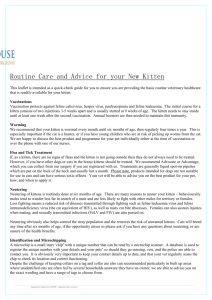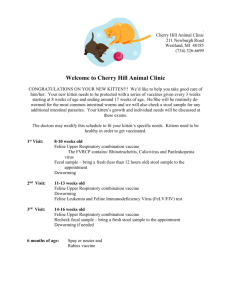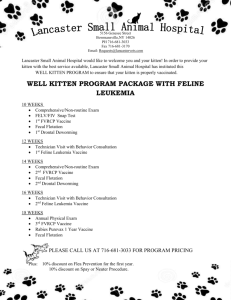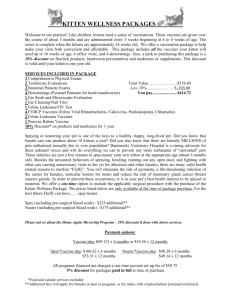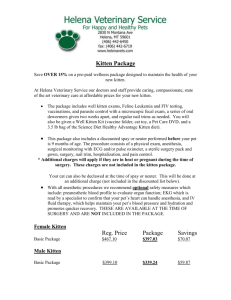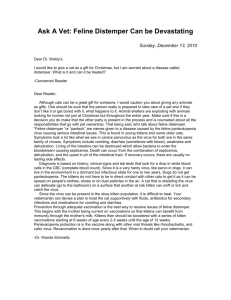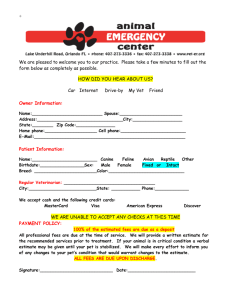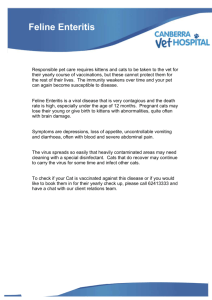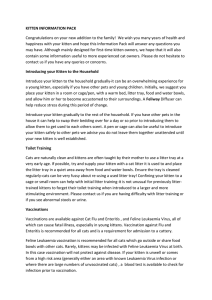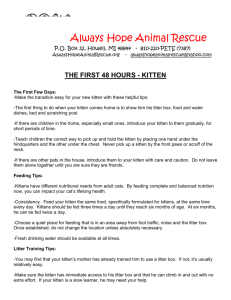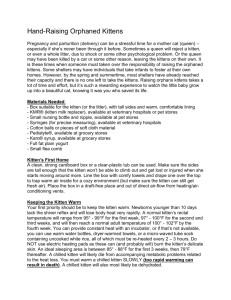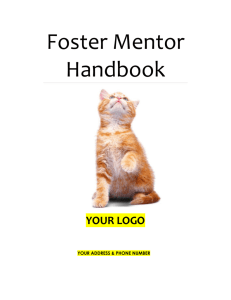Kitten Handout - Animal Health Center
advertisement
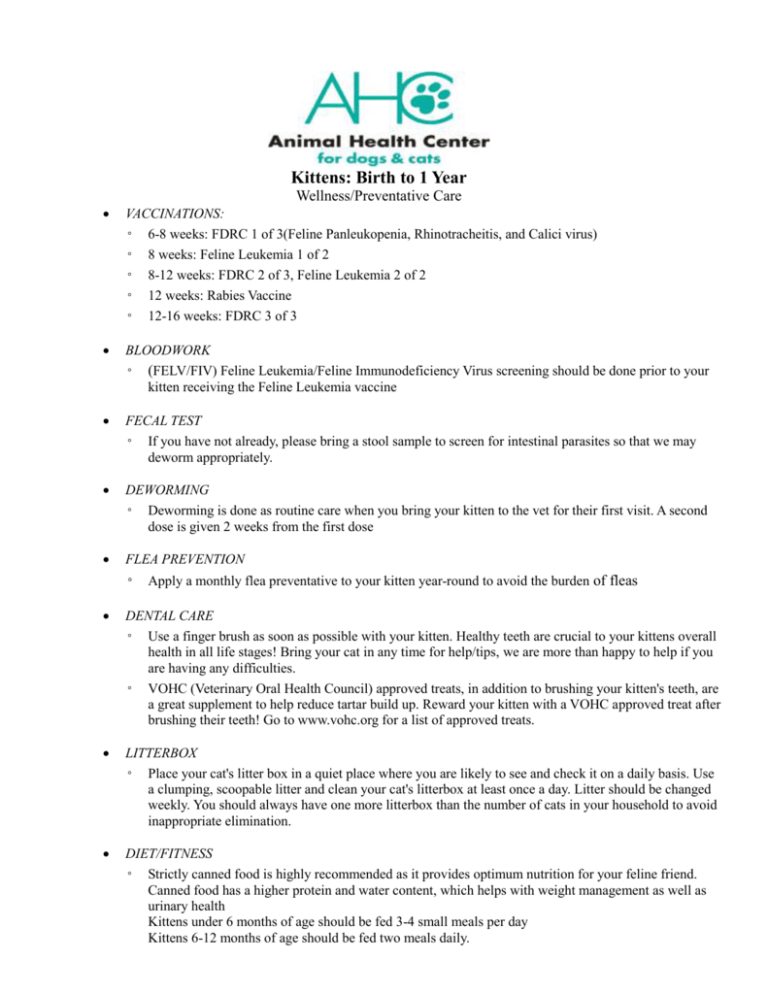
Kittens: Birth to 1 Year Wellness/Preventative Care VACCINATIONS: ◦ 6-8 weeks: FDRC 1 of 3(Feline Panleukopenia, Rhinotracheitis, and Calici virus) ◦ 8 weeks: Feline Leukemia 1 of 2 ◦ 8-12 weeks: FDRC 2 of 3, Feline Leukemia 2 of 2 ◦ 12 weeks: Rabies Vaccine ◦ 12-16 weeks: FDRC 3 of 3 BLOODWORK ◦ (FELV/FIV) Feline Leukemia/Feline Immunodeficiency Virus screening should be done prior to your kitten receiving the Feline Leukemia vaccine FECAL TEST ◦ If you have not already, please bring a stool sample to screen for intestinal parasites so that we may deworm appropriately. DEWORMING ◦ Deworming is done as routine care when you bring your kitten to the vet for their first visit. A second dose is given 2 weeks from the first dose FLEA PREVENTION ◦ Apply a monthly flea preventative to your kitten year-round to avoid the burden of fleas DENTAL CARE ◦ Use a finger brush as soon as possible with your kitten. Healthy teeth are crucial to your kittens overall health in all life stages! Bring your cat in any time for help/tips, we are more than happy to help if you are having any difficulties. ◦ VOHC (Veterinary Oral Health Council) approved treats, in addition to brushing your kitten's teeth, are a great supplement to help reduce tartar build up. Reward your kitten with a VOHC approved treat after brushing their teeth! Go to www.vohc.org for a list of approved treats. LITTERBOX ◦ Place your cat's litter box in a quiet place where you are likely to see and check it on a daily basis. Use a clumping, scoopable litter and clean your cat's litterbox at least once a day. Litter should be changed weekly. You should always have one more litterbox than the number of cats in your household to avoid inappropriate elimination. DIET/FITNESS ◦ Strictly canned food is highly recommended as it provides optimum nutrition for your feline friend. Canned food has a higher protein and water content, which helps with weight management as well as urinary health Kittens under 6 months of age should be fed 3-4 small meals per day Kittens 6-12 months of age should be fed two meals daily. Kittens: Birth to 1 Year Wellness/Preventative Care SCRATCHING POST ◦ Choose a sturdy scratching post made of cardboard or sisal fiber. Avoid carpet material as this will encourage cats to use your furniture or carpeted floors as their scratching posts SPAY/NEUTER ◦ 6 months of age ◦ Transition from kitten food to adult around this time to avoid excessive weight gain PET INSURANCE/IDENTIFICATION ◦ There are several insurance companies available to pet owners. Accidents happen, and sometimes they are extremely expensive. We see pet owners having to make life or death decisions based on financial restrictions all too often, and the easiest/most affordable way to avoid this conflict is pet insurance. We have a couple companies that we do recommend and we would love to give you more information if this is something that you are interested in. On average, having insurance for your companion will run you around $20 a month ◦ Having your kitten microchipped is an inexpensive way to help your friend find his way home should he go missing. It is not a GPS system, but does help several pets find their way back to their families. If your kitten is already microchipped, be sure to keep your information up to date with the company so that you can be reached if your cat is found ◦ If your kitten goes outside, put a breakaway collar with his name and your contact information PREFERRED 24/7 EMERGENCY CLINIC The Veterinary Emergency, Critical Care & Cancer Treatment Center of NH (VECC): Portsmouth, NH 603-431-3600 OTHER EMERGENCY CLINIC CONTACTS Port City Veterinary Referral: Portsmouth, NH at 603-433-0056 Brentwood Emergency & Surgery: Brentwood, NH at 603-642-9111 Winnipeasukee Veterinary Emergency: Meredith, NH at 603-279-1117 Southern NH Veterinary Referral Hospital: Manchester, NH at 603-782-8181
